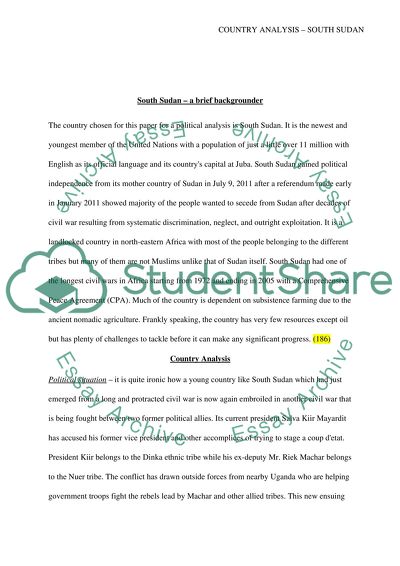Cite this document
(“Country Analysis Outline Example | Topics and Well Written Essays - 1000 words”, n.d.)
Retrieved from https://studentshare.org/social-science/1667269-country-analysis
Retrieved from https://studentshare.org/social-science/1667269-country-analysis
(Country Analysis Outline Example | Topics and Well Written Essays - 1000 Words)
https://studentshare.org/social-science/1667269-country-analysis.
https://studentshare.org/social-science/1667269-country-analysis.
“Country Analysis Outline Example | Topics and Well Written Essays - 1000 Words”, n.d. https://studentshare.org/social-science/1667269-country-analysis.


